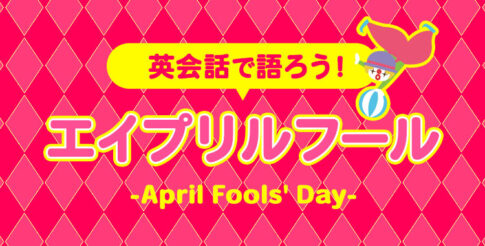英語学習者が間違いやすいフレーズはいくつかあります。以下にその例と正しい使い方を紹介します。
1. I have a good news.
- 間違い: I have a good news.
- 正しい: I have good news. / I have some good news.
ニュース(news)は不可算名詞なので「a」は不要です。
2. She is married with a dentist.
- 間違い: She is married with a dentist.
- 正しい: She is married to a dentist.
「〜と結婚している」は「married to」を使います。
3. I look forward to hear from you.
- 間違い: I look forward to hear from you.
- 正しい: I look forward to hearing from you.
「look forward to」の後には動詞のing形が必要です。
4. He explained me the problem.
- 間違い: He explained me the problem.
- 正しい: He explained the problem to me.
「explain」は直接目的語と間接目的語の順番が異なり、「〜に説明する」は「explain to 〜」となります。
5. Let’s discuss about the project.
- 間違い: Let’s discuss about the project.
- 正しい: Let’s discuss the project.
「discuss」は他動詞で、前置詞「about」は不要です。
6. I have been to Tokyo last year.
- 間違い: I have been to Tokyo last year.
- 正しい: I went to Tokyo last year.
「last year」などの過去の特定の時点を示す表現がある場合は、過去形を使います。
7. I’m not agree with you.
- 間違い: I’m not agree with you.
- 正しい: I don’t agree with you.
「agree」は動詞なので、否定形にするには「don’t」を使います。
8. She told that she was tired.
- 間違い: She told that she was tired.
- 正しい: She said that she was tired. / She told me that she was tired.
「tell」は誰に言ったかを示す間接目的語が必要です。
9. He is good in math.
- 間違い: He is good in math.
- 正しい: He is good at math.
「〜が得意である」は「good at」を使います。
10. Can you borrow me a pen?
- 間違い: Can you borrow me a pen?
- 正しい: Can you lend me a pen? / Can I borrow a pen from you?
「borrow」は「借りる」、「lend」は「貸す」です。
これらのフレーズに注意して正しく使うことで、より自然な英語を話すことができます。
英語学習者が間違って使いやすい単語とその正しい使い方
英語学習者が間違って使いやすい単語にはいくつかあります。以下に、その単語と正しい使い方を紹介します。
1. Actually
- 間違った使い方: Actually, I can’t come to the meeting (実際には行けないんだけど)。
- 正しい使い方: Actually, I can come to the meeting (意外なことに行けるよ)。
- 解説: “Actually” は「実際に」という意味ではなく、意外な事実を述べる際に使います。
2. Lend / Borrow
- 間違った使い方: Can you borrow me a pen?
- 正しい使い方: Can you lend me a pen? / Can I borrow a pen from you?
- 解説: “Lend” は「貸す」、”borrow” は「借りる」という意味です。
3. Sympathy / Empathy
- 間違った使い方: I have empathy for your loss.
- 正しい使い方: I have sympathy for your loss. / I empathize with your situation.
- 解説: “Sympathy” は他人の不幸を共感すること、”empathy” は他人の感情や経験を自分ごとのように感じることです。
4. Job / Work
- 間違った使い方: I have a lot of jobs to do today.
- 正しい使い方: I have a lot of work to do today.
- 解説: “Job” は特定の職務や職業、”work” は一般的な仕事や作業を指します。
5. Fun / Funny
- 間違った使い方: The movie was really fun.
- 正しい使い方: The movie was really funny.
- 解説: “Fun” は楽しい、”funny” は面白い、滑稽という意味です。
6. Say / Tell
- 間違った使い方: He said me to go home.
- 正しい使い方: He told me to go home. / He said to go home.
- 解説: “Say” は「言う」、”tell” は「伝える」という意味で、間接目的語が必要です。
7. Look / See / Watch
- 間違った使い方: I look a movie last night.
- 正しい使い方: I watched a movie last night.
- 解説: “Look” は視覚を向ける、”see” は見える、”watch” は注意して見るという意味です。
8. Speak / Talk
- 間違った使い方: Can I talk with you for a minute?
- 正しい使い方: Can I speak with you for a minute?
- 解説: “Speak” は一方向の話、”talk” は会話のやり取りに使いますが、ビジネスやフォーマルな場では “speak” を使う方が一般的です。
9. Rise / Raise
- 間違った使い方: The sun raises in the east.
- 正しい使い方: The sun rises in the east.
- 解説: “Rise” は自動詞で「上がる」、”raise” は他動詞で「上げる」という意味です。
10. Few / A Few
- 間違った使い方: I have few friends in the city.
- 正しい使い方: I have a few friends in the city.
- 解説: “Few” は「ほとんどない」、”a few” は「少しある」というポジティブな意味です。
これらの単語の使い方に注意することで、英語での表現がより正確になります。











間違いやすい英語フレーズとその正しい使い方